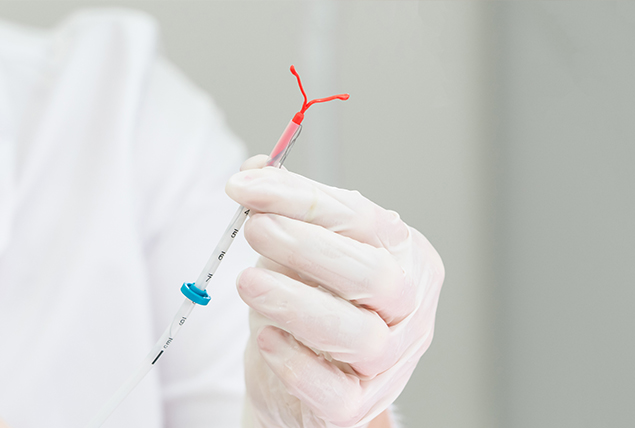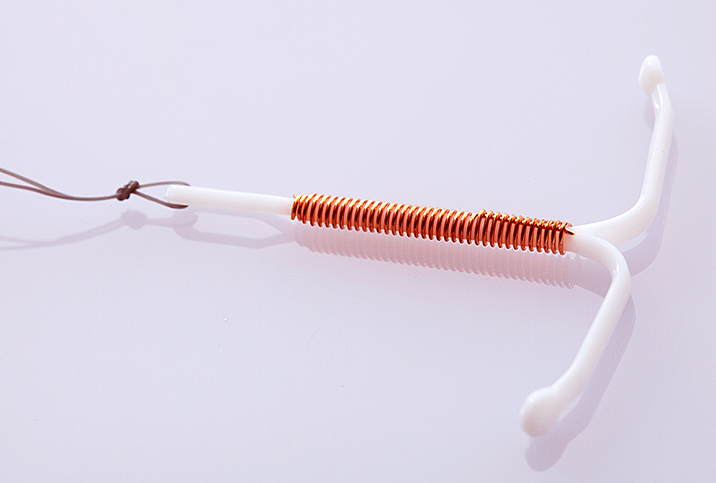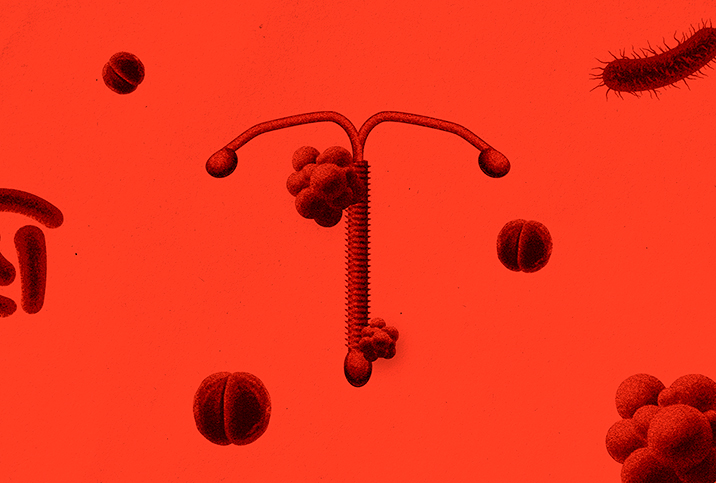The Possible Link Between the Mirena IUD and Breast Cancer

The Mirena intrauterine device (IUD) is a type of contraception that works by releasing a hormone called levonorgestrel, which thickens the mucus in your cervix and prevents sperm from reaching your eggs. Although the Mirena IUD is a safe and effective form of birth control, in addition to being used to treat conditions such as endometriosis, it may have a link to breast cancer.
Is there a link between the Mirena IUD and breast cancer?
This possible link doesn't necessarily mean if you use the Mirena IUD, you are at risk of developing breast cancer.
Jane Lowe Meisel, M.D., medical oncologist and associate professor of hematology at Emory University School of Medicine in Atlanta, explained what is currently known about the connection between the Mirena IUD and breast cancer.
"There is no known definitive link between the Mirena IUD and breast cancer in the general population," she said. "Studies on this topic are mixed. There are some studies that show a possible link between hormone-secreting IUDs and some subtypes of breast cancer."
Certain hormones such as estrogen and progesterone are known to fuel breast cancer, and the hormone in the Mirena IUD is a man-made version of progesterone. Therefore, if you have a family history of hormone-sensitive breast cancer, your doctor may advise you against getting this particular device.
In 2020, researchers at the University of Campinas Medical School in Sao Paulo published a systematic review of existing literature on the link between levonorgestrel-releasing intrauterine systems and breast cancer risk. The review suggested there is an increased risk regardless of age, but the risk is higher in older users and they should be made aware of this by healthcare providers. The authors suggested it was vital to consider other risk factors, too, such as weight and family predisposition to certain cancers, before using a levonorgestrel-releasing IUD.
Am I at risk of breast cancer?
Some forms of cancer can be genetic, thus, it's important to know if you have a family history of breast cancer.
"I would discuss your family history, personal history and medical history with your provider in order to determine your personal risk of breast cancer," Meisel said. "If you have a strong family history of breast or ovarian cancer, or breast cancer at a young age, or a strong family history of pancreatic or prostate cancer, it is possible you might have an inherited mutation that makes you higher risk for breast cancer, such as BRCA1 or BRCA2. Your doctor may recommend genetic testing if this is the case."
Does that mean you can't get the Mirena IUD if you have a family history of breast cancer?
"Hormonal contraceptives of any type are not recommended for women who have breast cancer or are at an increased risk of breast cancer," said Fatima Naqvi, M.D., an OB-GYN with Atlantic Medical Group in New Jersey. "The Mirena IUD is a progestin-only birth control. Although there is not enough research for a definitive answer on if progestin has a direct link to breast cancer, it is safer for women who have a family history of cancer to refrain from using this type of contraceptive."
Other forms of contraception?
Naqvi also addressed the possible risks of other contraceptive methods, including other IUDs.
"According to the National Cancer Institute, studies have found that oral contraceptives can lead to a slight increase in the relative risk of developing breast cancer," Naqvi said. "Although this risk is only about 7 percent, it is still notable that this increase in risk was not present among women who have never taken oral contraceptives of any kind."
A 2017 study published in the New England Journal of Medicine found any hormonal contraceptive, including the pill, can slightly increase the risk of developing breast cancer. However, the study also found the importance of this increase is dependent on an individual's personal health and lifestyle choices, such as whether or not they drink or smoke.
According to news reports, Bayer Pharmaceuticals, the developer of the Mirena IUD, is facing a class-action lawsuit in California that claims women have an increased risk of breast cancer from using the device.
The Mirena website outlines risks and precautions for the product, stating people should not use it if they have breast cancer or any other cancer that is sensitive to progestin, now or in the past.
Although the risk of developing breast cancer as a result of your hormonal contraception is low, it remains important to discuss your family history in detail with your OB-GYN or other health practitioners to ensure they're suggesting the best options for you and your body.
If you don't have a regular physician, now is the time to find one. Giddy telehealth takes the difficulty out of such a search, providing access to hundreds of healthcare professionals who offer video visits as a regular part of their practices. It is an easy-to-use online portal whose physicians, therapists and others have expertise across the full scope of medical care. Many have same-day appointments.


















